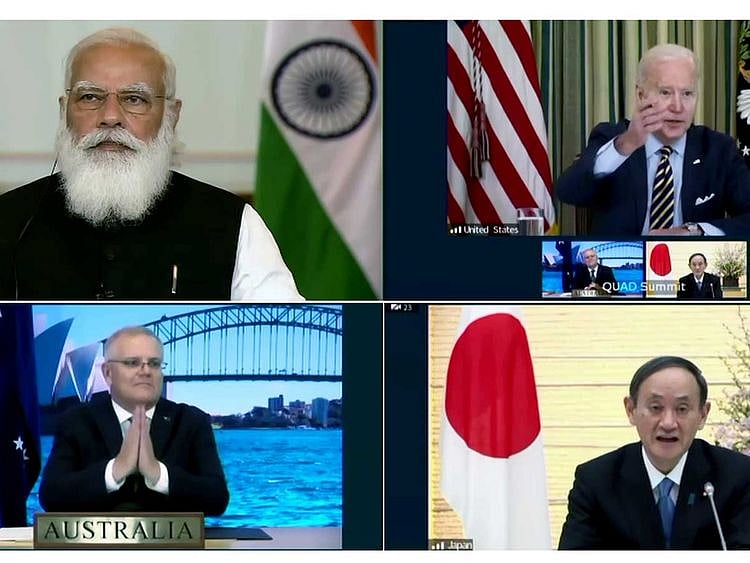Quad pact on vaccines can be a global template
Decision the most significant collective step taken by powerful countries in war on Covid

A pact on Friday between the United States, India, Japan and Australia is expected to address long-term coronavirus vaccine supply and production challenges the world — especially the poor countries — is facing.
The pact announced after a virtual summit attended by US President Joe Biden, Japanese Prime Minister Yoshihide Suga, Indian Prime Minister Narendra Modi, and Australian Prime Minister Scott Morrison pledges to fund and produce one billion doses by the end of 2022, good for inoculating up to 500 million people worldwide.
This announcement is the most significant step taken by powerful countries after the World Health Organisation (WHO) sought equitable distribution of vaccines. The WHO has been pointing out uneven access as rich countries corner global supplies by spending billions of dollars.
Friday’s pact by the countries, collectively known as the Quad, may prove to be an ideal template to address the shortfall and uneven distribution — rich nations fund manufacturing in a developing country to reduce landing cost of the vaccine. Under this, the US and Japan will provide funds and concessional loans to India to manufacture vaccines by Indian company Biological E Ltd on behalf of American drugmakers Novavax Inc and J&J.
However, the timeline proposed under the pact is unlikely to address immediate concerns of several countries. For example, South Asian countries are eager to vaccinate their populations as fast as possible and cannot afford to wait till 2022. These countries will source vaccines from whosoever is willing to sell or donate, regardless of the country of origin.
This is where the role of big vaccine producing countries, including China and Russia becomes important. Both the countries have demonstrated ability to ramp up vaccine production for export. Mass production of vaccines requires cost-effective manufacturing facilities and access to syringes and raw material.
The growing desperation to inoculate populations is seen by some nations as an opportunity to build and strengthen geo-political alliances through ‘vaccine diplomacy’. While this new tool may appear to be harmless, it must not be deployed to score diplomatic victories over rivals or undermine efforts of others. Rich and powerful nations must come together to build alliances and ensure enough vaccines are available to all corners of the globe.
The international community is facing a common enemy and the global response to pandemic must be channelised in one direction – save lives and defeat the coronavirus. Falling for the temptation to prioritise geo-political goals over humanitarian considerations will be disastrous and weaken the global war against the disease.
Sign up for the Daily Briefing
Get the latest news and updates straight to your inbox
Network Links
GN StoreDownload our app
© Al Nisr Publishing LLC 2026. All rights reserved.